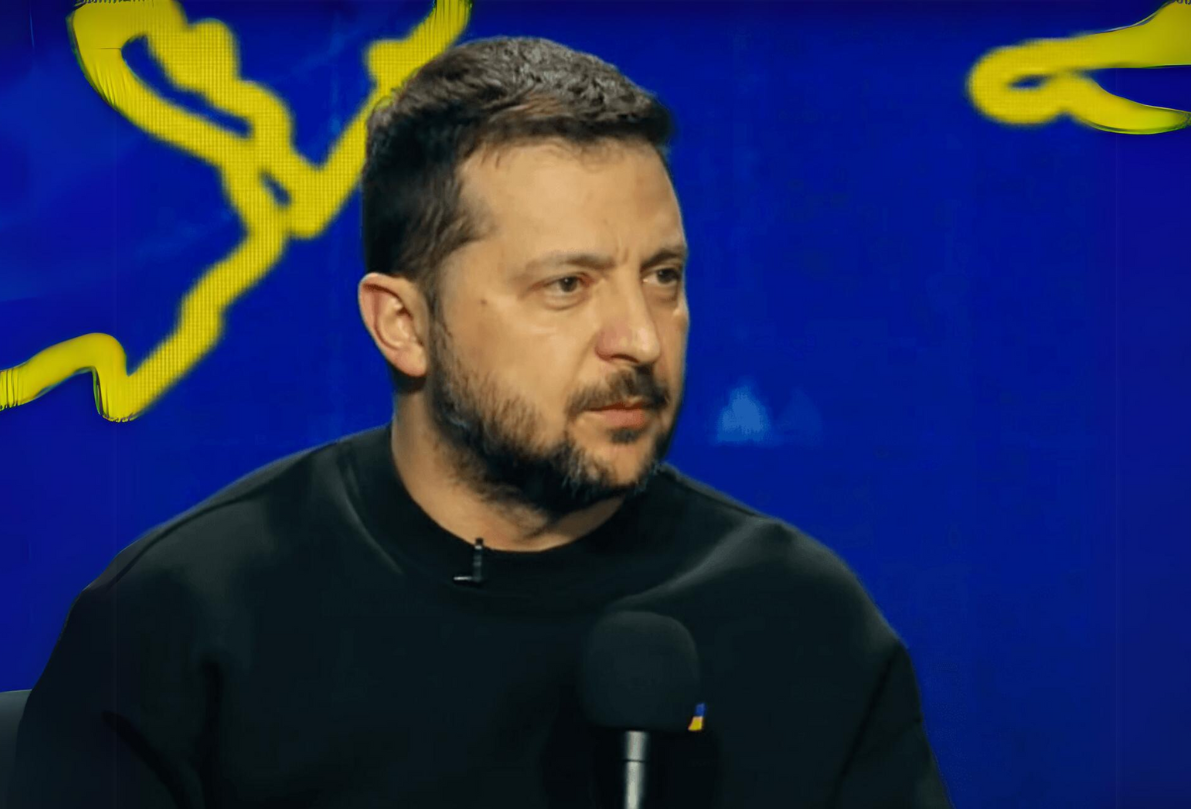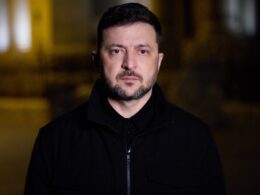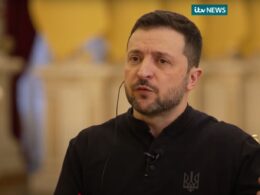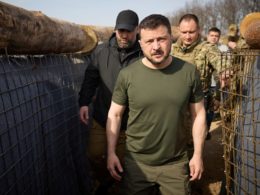On December 19, President Zelenskyy held a year-end press conference that lasted over two hours. He discussed issues with mobilization and demobilization of troops, prospects for further Western support, skepticism about partial NATO membership for Ukraine, military prospects, and more. Read the key takeaways from the President's remarks in our summary.
Mobilization and demobilization of Ukrainian soldiers
In a recent press conference on December 19, Ukrainian President Volodymyr Zelenskyy revealed that Ukrainian military leadership proposed an additional mobilization of 450,000 to 500,000 individuals.
Zelenskyy stated that the military leadership raised the issue at the strategic level, addressing concerns related to the protection of the state, potential counteroffensive actions, and resource deficits. Describing the proposed figure as "very serious," Zelenskyy conveyed his request for more concrete arguments to support such a significant mobilization. He emphasized the necessity of a well-thought-out plan, encompassing aspects such as the rotation of troops, leave policies, and the overall impact on the existing million-strong Ukrainian army.
Zelenskyy mentioned that he has yet to see demobilization measures included, which he considers to be the primary concern. He also underscored the importance of determining who deserves rest among the potentially mobilized individuals, highlighting the significance of fairness in the decision-making process.
“The main thing is that the process should be fair to our powerful warriors. It is very challenging for them there, and I have been there repeatedly… There should be considerations for deployments, leaves, and the possibility of transitioning from one place to another. All inquiries from the army must find an answer in military leadership,” Zelenskyy said.
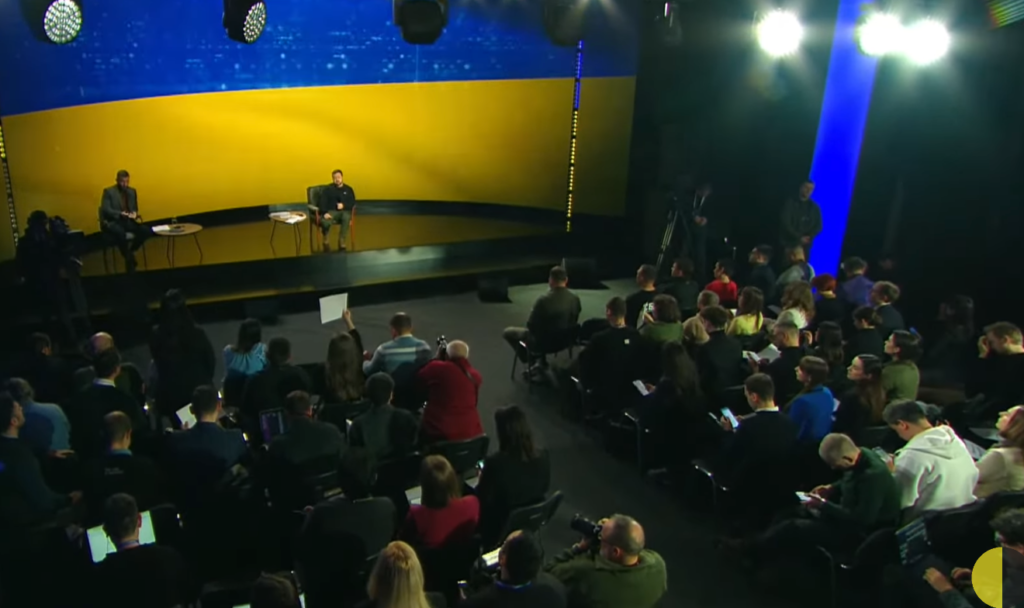
Zelenskyy pointed out that the proposed mobilization, in its current format, would require an additional 500 billion hryvnias for Ukraine. The President also assured that he would not support mandatory mobilization of women.
The President has also spoken out in defense of civilian taxpayers, emphasizing the financial contributions required to support the military. According to him, sustaining one soldier necessitates the tax payments of six civilians.
"I would like to defend civilians a bit. When you understand the financial contribution needed to support our soldiers, we must realize that their salaries are paid by our people, our population, individuals who pay taxes. When we talk about various mobilizations, we must know that one soldier equals six people in civilian life who pay taxes," he said.
He urged the public to consider the implications, saying, "Take 500,000 people, multiply by 6, and understand how, for the government and all of us, finding an additional 3 million taxpayers from January onwards is crucial."
Western support
Zelenskyy also expressed his unwavering confidence in continued financial assistance from the United States and shared insights from his recent trip to the US President Zelenskyy indicated that he believes he has found understanding with President Joseph Biden and senators from both parties during their meetings. He emphasized the need to examine the specifics concerning timelines.
The president stated, "Regarding financial aid, we are working very hard. I am confident that the United States will not let us down, and what we have agreed upon, the US will fulfill completely... We anticipate this assistance; they are aware of the details, what it is needed for, and how it will impact. They understand the implications of postponing certain dates."
Zelenskyy stated that there is no discussion in the US of Ukraine's defeat, as Russia failed to achieve any of its goals in 2023.
Zelenskyy said, "As for the battlefield... Russia has achieved no results this year. I am talking about 2023. None of its goals... There is no talk of Ukraine's defeat. Russia has achieved no victories, in just three days? Two years."
At the same time Zelenskyy expressed concern that the policies of the next US president, to be elected in 2024, could significantly influence the course of the war in Ukraine, especially if the US adopts a more inward-focused approach.
Zelenskyy considered different scenarios, stating, "If the next president's policy—regardless of who they are—becomes different towards Ukraine, colder or more inward-focused, prioritizing internal matters and being more economical, then, I think, these signals will strongly affect the course of the war in Ukraine."
President Zelenskyy also expressed his confidence in European partners. He stated, "I am grateful for the new relationships with European countries, which highly respect us, take pride in our people. We have built special personal relationships with them."
He announced Ukraine's longstanding commitments to financial assistance from Belgium, Denmark, Korea, Latvia, Lithuania, the Netherlands, Norway, France, Germany, Sweden, and Japan during a press conference.
NATO prospects
During the press conference, Zelenskyy expressed skepticism regarding the idea of Ukraine's partial entry into NATO, emphasizing that full membership remains the most robust option for ensuring the country's security.
Zelenskyy dismissed the notion of "partial entry," asserting that Ukraine has not received any official proposals from partners regarding such an arrangement. He underscored that the signals about partial participation in the Alliance are misleading and expressed skepticism about the effectiveness of this initiative.
The concept of partial NATO membership has been promoted by former NATO Secretary-General Anders Fogh Rasmussen. However, President Zelenskyy finds it challenging to envision the practicality of such an arrangement, stating, "It's very difficult to imagine how it could work."
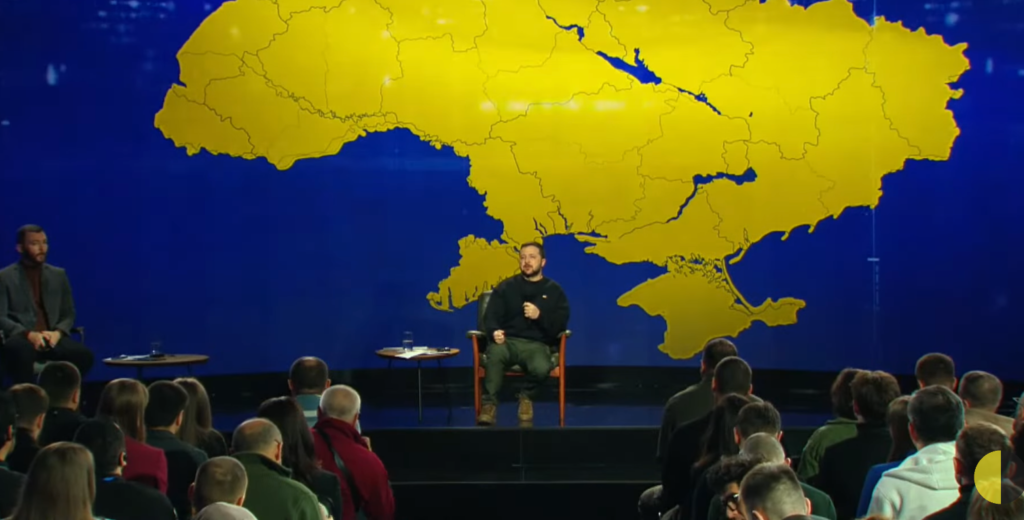
"Imagine that part of Ukraine is in NATO. It's high risks… It means he [Putin] will enter, and there will be war with NATO," said the president.
Zelenskyy also pointed out that partial NATO membership would raise questions about the return of Ukraine's occupied territories, emphasizing that Ukraine would not recognize any part of its territory as Russian.
Ukraine’s military goals
Zelenskyy has refrained from revealing Ukraine's goals for the war in 2024, responding to a question about "realistic goals" following Ukraine's summer counteroffensive and the objectives for the next 12 months:
"I can't tell you about the goals. We faced challenges in the south because everyone around us was talking about our goals. Frankly speaking, for months, everyone discussed where we were going, examining in detail how we would get there, whether we would get there, what's better, what's sufficient, what's not; maybe it's better to go south, it's warm there, and we can do it later because it's winter there..Sorry. It doesn't work that way with Russia, which has more weapons. Therefore, I can't comment on it. I can't tell you any details about our counteroffensive plan."
The day before, Chief of the Armed Forces Valeriy Zaluzhny said he could not comment on military plans, stating that doing so would turn it into a "show."
Gaza and Ukraine parallels
In response to a journalist's question about the difference between casualties in the Gaza Strip from Israeli actions and Ukrainian losses at the hands of Russians, emphasized that these are distinct situations.
In his direct words, Zelenskyy stated, "We recognize the policies of two states – Israel and Palestine. We acknowledge this tragedy, recognizing the humanitarian consequences as severe on the territory of both states. We recognize the independent people of Israel; we recognize the independent people of Palestine. But I cannot equate this to our war. Russia's occupation and invasion of Ukraine did not start with a terrorist attack by individuals with Ukrainian citizenship on Russian territory. We lived in our independent state, and the enemy came in and killed our people. Therefore, these are different things."
Dual citizenship prospects
Zelenskyy has urged Ukrainians living abroad not to hastily renounce their citizenship, emphasizing that dual citizenship can help address this matter.
In his direct words, Zelenskyy stated, "I spoke about dual citizenship before the full-scale war began; it was in our program. I truly believe it is normal, and I believe there are indeed 60 million Ukrainians worldwide. Not everyone necessarily has to live in Ukraine; they have their history and families. Some were born in Canada or the USA, but we must give them the opportunity to support Ukraine, feel Ukrainian, help, open businesses here, pay taxes, and so on. All of this undoubtedly benefits Ukraine."
The President also called on women with children working abroad not to rush to renounce their Ukrainian citizenship, highlighting that dual citizenship can resolve this issue.
Meeting with Orban
President Volodymyr Zelenskyy has acknowledged occasional unfriendly relations in Budapest's policy towards Kyiv but believes that diplomatic solutions can be found. In particular, Zelenskyy proposes a meeting with Hungarian Prime Minister Viktor Orban.
“Coffee break” diplomacy opens door for Ukraine, but Orbán vows handbrake ahead
Despite the challenges, Zelenskyy highlighted the need for direct dialogue, given the neighboring relationship between Ukraine and Hungary. In his direct words, Zelenskyy stated, "Nevertheless, we are neighbors. We are trying to find solutions and answers to certain questions. But for this, we need to organize a meeting... Last time in Argentina, I asked Orban: 'Viktor, give me one reason why you do not support us in the EU?' He couldn't say. And secondly, I asked him, why can't we organize an official meeting between us? And he also couldn't provide an answer."
Poland-Ukraine border blockade
Zelenskyy expressed optimism about resolving the border blockade issue with Poland under the leadership of the new government headed by Donald Tusk.
"And I will believe that the new government [of Poland] will lift this entire blockade... I had a conversation with Donald Tusk. I am grateful to him for his strong position at the EU meeting. We talked overnight on the eve of this meeting; he is in a powerful situation. And I very much believe that we will resolve everything," he added.
Zelenskyy believes the previous government, post-elections, was involved in the blockade and is hopeful that the new administration will lift the restrictions. "I was convinced that these were political elections of officials who lost. And I said then: you will lose this policy, you will lose to yourselves," Zelenskyy added. The president acknowledged discussions with President Andrzej Duda and emphasized his confidence in Donald Tusk's strong stance.
The blockade, initiated by Polish carriers on November 6, demands the reinstatement of permits for Ukrainian carriers. Zelenskyy aims to address the situation with the new Polish government and expects a positive resolution.
Societal view of the president
Criticism of Ukraine's authorities has risen in December 2023 compared to the previous year, according to a Kyiv International Institute of Sociology (KIIS) poll. President Zelenskyy's public trust has decreased to 62% from 84% in December 2022. Meanwhile, 88% of Ukrainians trust the Commander-in-Chief of the Armed Forces, Valeryi Zaluzhnyi.
During a year-end press conference on December 19, Zelenskyy responded to a journalist's question about potential conflicts and whether he plans to dismiss Zaluzhnyi. Zelenskyy stated, "I have a working relationship with Zaluzhnyi. He is responsible for the battlefield results as the chief commander, along with the General Staff. There are many issues there... The offensive is a complex matter: something happened, something didn't, something is lacking... We need strong actions and results... every day in every position."
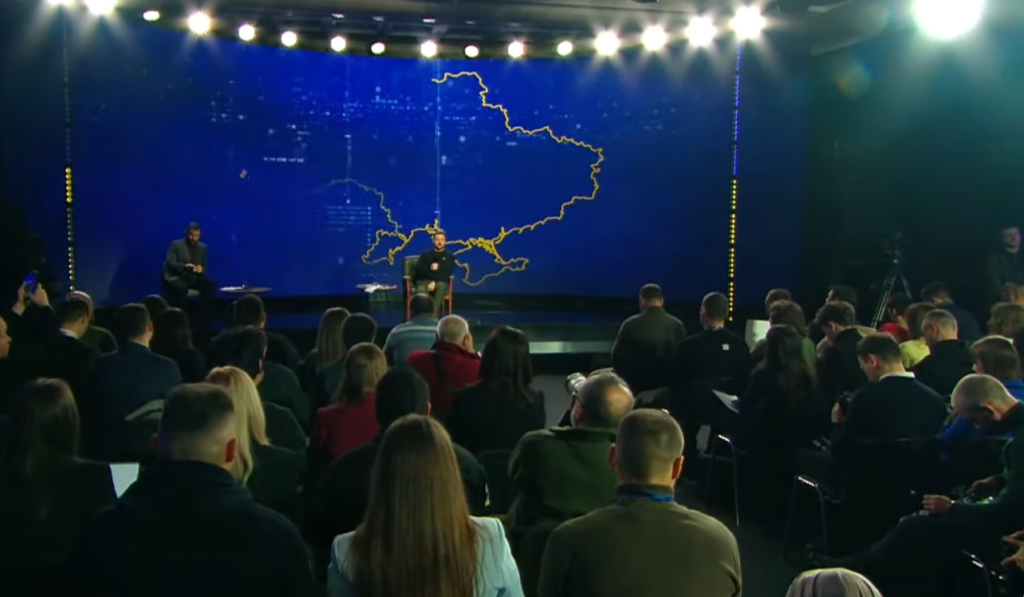
When asked about concerns regarding societal divisions in Ukraine, not only due to the two-year war but also regarding support for him as president, Zelenskyy responded,
"As for supporting me as president, I said that it is an honor for me to be president. Beyond that, people decide, people see how I work, how I serve Ukraine. If they don't like it – well, that's understandable, it's the choice of Ukrainians, and that's normal."
President Zelenskyy emphasized the importance of doing everything possible to ensure unity does not falter in Ukraine. He highlighted that the unity of the Ukrainian people serves as a powerful asset for the country's resilience, especially in the face of challenges brought about by the ongoing war.
"Our unity is our domestic production weapon; it is our know-how that helped us preserve the country at the beginning of the war. Perhaps this word becomes very banal for someone. But some banalities must be preserved, upon which depends another banal but essential word – simply 'life,'" stated Zelenskyy.
Uncertainty about the war duration
Zelenskyy acknowledged the uncertainty surrounding the timeline for the conclusion of the war in Ukraine. Despite the lack of definitive answers, the President urged Ukrainians to play an active role in hastening the end of the war by doing everything possible to secure victory.
During the conference, Zelenskyy responded to a question about whether he could confirm that the war would not end by at least 2024 because Western leaders, including German Chancellor Olaf Scholz, NATO Secretary-General Jens Stoltenberg, and "Azov" Commander Denys Prokopenko, have expressed concerns that the war may persist for years.
President Zelenskyy's response emphasized the unpredictability of the situation, stating,
"Will the war end in 2024? I think no one knows the answer. Even respected individuals, our commanders, or Western partners, when they say the war will last for many years, they do not know. It's a dialogue; these are opinions. Opinions often differ from reality."
Drawing an analogy, President Zelenskyy referred to the "three-day triumph of a sick person," alluding to the aggressor country's initial plan to conquer Ukraine in three days. However, he clarified that he was not comparing his opinion to the views of "respected individuals."
Zelenskyy underscored the collective responsibility of Ukrainians in determining the course of the war, stating, "If we maintain our resilience, we will end the war sooner. If we do not lose our spirit. And I know that there are millions like me, not ready to surrender our country. From the first day until the last, it will be like this. If we preserve all these goals and do much more than each of us can, I am confident we can bring this victory closer."

